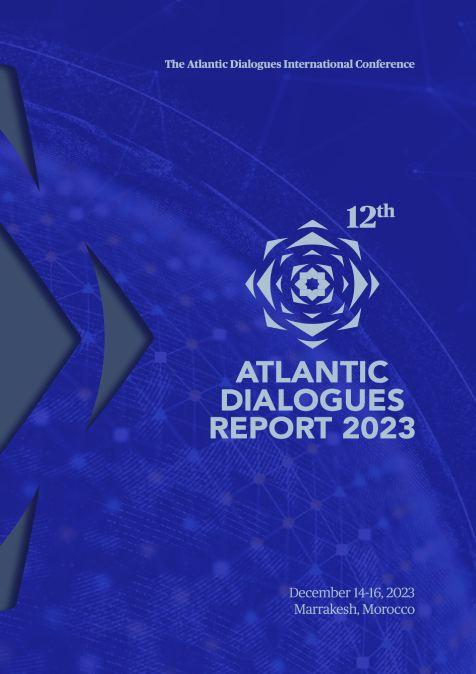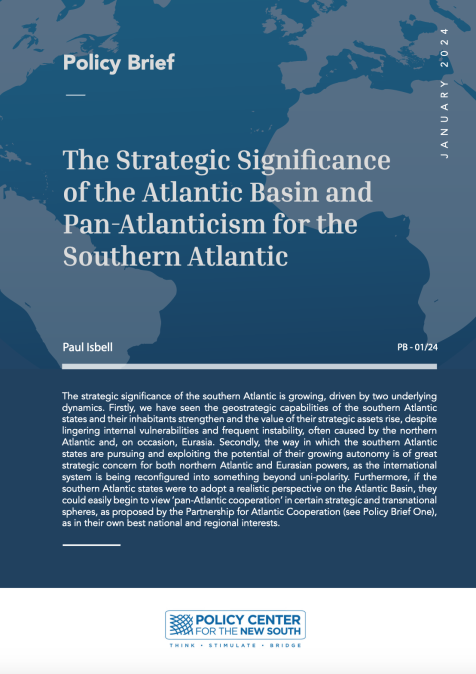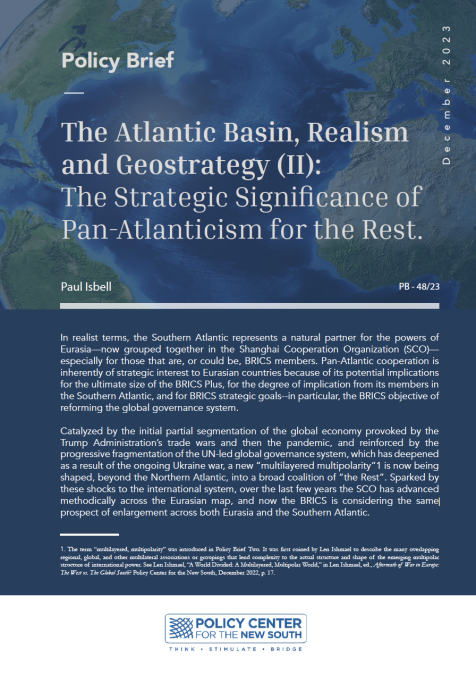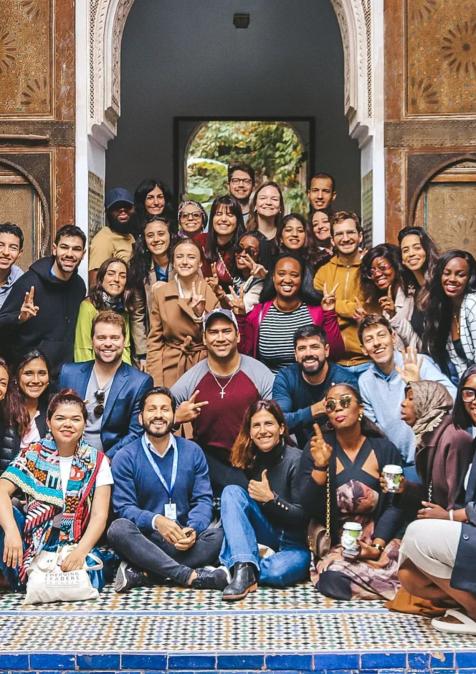Publications /
Book / Report
In an age of deep uncertainties and an increasingly unpredictable future, the Atlantic Dialogues continue to embody the essence of reasoned, high-level engagement. Held under the High Patronage of His Majesty King Mohammed VI, the 12th edition welcomed in Marrakesh over 450 distinguished participants, including high-ranking officials, decision-makers, and experts from 80 nations.
The theme of the 2023 edition of the Atlantic Dialogues, “A More Assertive Atlantic: Its Meaning for the World,” spoke to the transformative moments we are experiencing. The Atlantic space is no longer defined solely by the traditional powerhouses of the Washington-Brussels axis. Instead, we are witnessing the emergence of a more inclusive Atlanticism, where diverse histories and cultures blend to foster collaboration. This new dynamic, though marked by disparities in governance systems and economic models, reflects the broader geopolitical shifts of the 21st century where the rising New South is redefining the global order.
This edition also highlighted the multidimensional crisis enveloping international relations today—economic, democratic, and environmental pressures are fragmenting the global community. To address these common challenges, we must first rebuild the foundations of multilateralism and foster cooperation that is inclusive and equitable. Moreover, strategic partnerships must transcend traditional frameworks, grounding themselves in mutual respect and shared responsibility. Rebalancing North-South relations is central to this effort, as the traditional hierarchies that have underpinned transatlantic cooperation are being questioned, with nations from the New South seeking a more influential role in shaping global decisions.
Another crucial theme that emerged was the growing disconnect between governance structures and the populations they are meant to serve. In many parts of the world, the social contract is under strain, as rising inequality and social discontent erode the legitimacy of governing institutions. The Atlantic Dialogues offered a platform to explore how we might rebuild this social contract, focusing on governance systems that are more inclusive, responsive, and reflective of the needs of the New South.
Technological innovation, too, featured prominently in our discussions. We stand at a crossroads where the decisions we make regarding technological development will have profound implications for generations to come. The New South must play a pivotal role in ensuring that these advancements serve the broader goals of sustainability and shared prosperity. This requires a paradigm shift—a reorientation of priorities that places the common good at the center of our technological choices.
A notable aspect of the Atlantic Dialogues is its commitment to fostering intergenerational dialogue through the Atlantic Dialogues Emerging Leaders (ADEL) program. This year’s cohort, composed of 41 young professionals from 26 countries, brought fresh ideas and new perspectives to the discussions. Their active participation underscored the importance of involving younger generations in shaping the future of the Atlantic. The ADEL program continues to cultivate a vibrant community of young leaders, enhancing the dynamism and diversity of leadership across the region. The interplay between generations enriches the Policy Center’s role as an incubator of talents, where intellectual rigor is nurtured, and creativity is stimulated.
The 2023 edition of the Atlantic Dialogues was more than a conference—it was a call to action. The insights generated will guide the Policy Center for the New South as we continue to advance the aspirations of the New South on the global stage. Our commitment is to translate the ideas debated into actionable policy recommendations that will create tangible changes.
As we look to the future, the Atlantic Dialogues will remain a safe space for cultivating the collaborative relationships necessary to meet the challenges of our time. Only through sustained dialogue, rooted in mutual respect and a shared pursuit of the common good, can we navigate the complexities of the 21st century and create a world that is resilient, equitable, and just for all.









